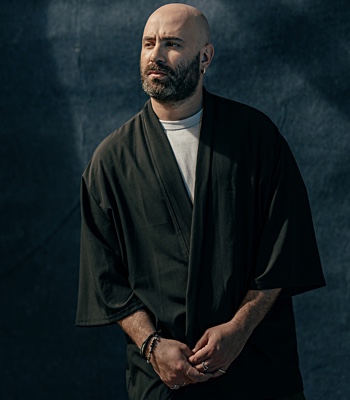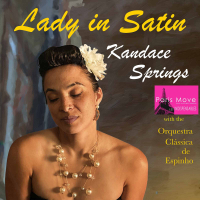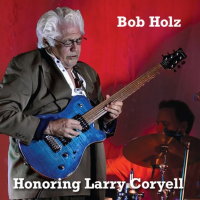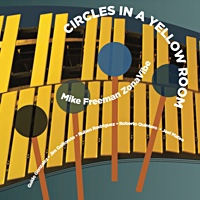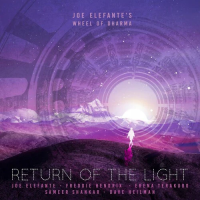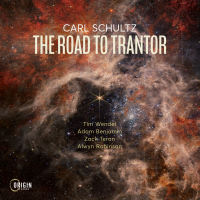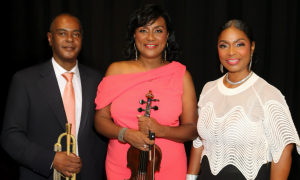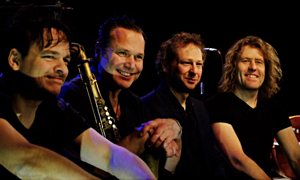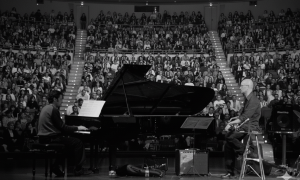By Pico
Volume 3 of my Stacks series makes it twenty albums considered and off my “pending" pile this week. This installment, like the prior two, follows no predetermined pattern, although I admit I inserted Barry Harris' latest offering at the last minute when I realized I didn't have any enough of the longtime well-known masters represented here. The rest? They're names you are less likely to have heard of, but perhaps you should get to know them. Whether it's more tradition-minded (Mort Weiss) or on the cutting edge (Albert Beger) or spiritual (Mark Lomax), or something in-between, these releases are further evidence that jazz in 2010 is still alive, well and kicking...
John McNeil/Bill McHenry Chill Morn He Climb Jenny: John McNeil is a trumpet player, a veteran of the illustrious Thad Jones/Mel Lewis Orchestra and has led recording dates since 1978. Bill McHenry is a saxophonist, has played with Charlie Haden, Paul Motian, Henry Grimes and Norah Jones, and has led recording dates since 1998. A few years ago the two cross-generational players have formed a co-led combo, and this live set from a Manhattan club is their second record together. The quartet is rounded out by Joe Martin on bass and Jochen Ruekert on drums. Two things I like about this record. One, McNeil and McHenry complement each other well: McNeil with his acidic, economical tone and McHenry with a full-bodied accented tone. Secondly, piano-less horn-led ensembles are a hell of a lot of fun, especially live. The freedom allowed enables the soloists to stretch out and the spaces left by chords not played is like missing puzzle pieces that requires listeners to fill in themselves. This format was pioneered by the Gerry Mulligan/Chet Baker quartets of the early fifties. The choice of covers, many of them West Coast jazz mainstays composed around that time, confirms that McNeil and McHenry were seeking to recapture that spirit, and they do just that with total aplomb. Highlights include a reading of “Moonlight In Vermont" with its ominous opening and some beautiful phrasing by both once they get into the melody. “Bea's Flat" is a great clinic on trading fours by the two leaders. Martin and Rueckert hold things down solidly on the rhythm end. Chill Morn He Climb Jenny might be a perplexing title for a record, but it's worth remembering for the great performances contained within.
Mort Weiss Raising The Bar: I tend to regard unaccompanied solo records as a pretty good indicator as to how well that musician can play their instrument. Even if they play so well a capella, though, that doesn't necessarily make it a great record. It can so easily devolve into a “look how good I am" exercise at the expense of playing actual music. Luckily, some of today's top players like Matthew Shipp and Vijay Iyer avoided those traps with their solo records this year. And, while this one didn't get as much press, so did Mort Weiss' clarinet-only Raising The Bar. All but three of the songs are standards, and I'm struck by how he makes the old melodies recognizable by stating a mere few notes in the right places, then proceed to make these staples his own. Raising The Bar caps an inspiring comeback from someone who had abandoned music altogether for decades after getting caught up with all the vices that came with being a jazz saxophonist in the '60s. Given his life story, his album ending rendition of “My Way" becomes a very intimate, autobiographical statement to the point of even making you forget about Sinatra. That's a pretty strong personal stamp.
Mark Lomax Trio The State of Black America: The drummer and composer Mark Lomax convened a recording session with saxophonist Edwin Bayard and bassist Dean Hulett with a batch of compositions that the Blacklist co-founder wrote when he was trying to come to terms with his own identity as both an American and a black person. His personal rediscovery and way of dealing with the complex issues of race in America fueled these five compositions that make up The State of Black America. Going back to Parker, Rollins and Coltrane, Lomax starts with one of the most distinctively African-American music forms: the blues. He uses the blues to set the parameters within each of the three make living, breathing organisms out of Lomax's songs. For instance, “Stuck In A Rut" is anything but, a rambunctious romp keyed by Dean Hulett's rumbling bass and Lomax crashing all about his kit. Bayard's tenor blows hot and hard, but he stays loosely tethered to a root. “The Unknown Self" is more quietly spiritual and Hulett gets plenty of real estate to articulate his thoughtful solo. “Blues For Charles (Who Split B4 The Butterfly Flew In)" is explicit blues that is played with care and commitment. Though no words are spoken or sung, The Mark Lomax Trio gets its point across, that jazz is not some classical Western music invention, but a great African-American heritage.
Albert Beger Electroacoustic Band Peacemaker: Avant-garde specialist Albert Beger has long been known commodity in his native Israel but not so much in America, despite having recorded with William Parker and Hamid Drake on a couple of records. Beger seeks to change that with what he considers one of his best recordings to date, Peacemaker. As the word after his name makes clear, this is avant-garde jazz that blends electronics with acoustic instruments. This tenor and soprano saxophonist used these sessions to perform compositions that map out a “a trip to inner self," not too unlike Mark Lomax sought to do above, but the ultimate destination is inner peace, thus the album's title. Helping him articulate that vision are Ido Bukelman (guitars), Assaf Hakimi (bass), Avi Elbaz (laptop and electronics), and Dan Benediki (drums, percussion). This is a very commodious set: even on the skronk delight “Triangle," there is never a feeling that they are trying to fill up all the sonic voids, keeping things angular and economical. Elbaz applies his electronic effects in the right measures, using them to add modern textures to traditional sound, never as a crutch. The compositions don't follow standard forms—-that's why it's avant-garde, after all—-but have definite shape and purpose, with some Middle Eastern influences sprinkled on top. Beger the performer is a good one, he can pour out heartfelt notes and shred them with equal effectiveness, and switch between these modes on a dime. His band is muscular, creative and really in tune with its leader. Peacemaker is a convincing introduction of this Israeli free jazz great to discerning audiences in the USA.
Mike Pride's From Bacteria To Boys Betweenwhile: Here's another CD of advanced jazz led by its composing drummer, this time Mike Pride. One thing I've found with drummer-led combos, is that drummers have a natural tendency toward democracy in a band, and his Bacteria To Boys share the load equitably and logically. The exceptional drummer-leaders find a way to bolster the songs and the guys in front of him without having to resort to ham-handed tactics, and Pride, a veteran of groups led by as diverse a lot as John Zorn to the Boredoms to Chinese pop sensation Priscilla Chan, never does. Within these ten tracks, nine composed by Pride, are modern jazz numbers that are sometimes advanced bop and sometime flat out whack jazz, but wherever it lands doesn't seem to matter much to the players. From the sizzling 2/4 ruckus of the title tune to the Bill Evans mood of “Kancamagus," there's something completely distinctive and sophisticated about each song. The curiously titled “Reese Witherspoon" is a rhythmic clinic even though Pride takes no solos: he is seemingly directing every little turn—-of which there are plenty—-from behind his drum kit. Betweenwhile is a well-executed performance of complexity made to sound simpler than it really is.
Barry Harris Live In Rennes: Like James Moody and Benny Golson, Barry Harris is a fine, old-school performer with a few standards under his belt (we were just discussing an interpretation of “Nascimento" in Volume 2) and whom I was pleasantly surprised to find is still making viable records. Having a long legacy from 1960 on playing alongside greats such as Cannonball Adderley, Sonny Stitt, Coleman Hawkins, Dexter Gordon, and Max Roach, Harris has become a major bop figure himself. Live In Rennes is a recent live performance Harris did in France, supported by Mathias Allamane (acoustic bass) and Philippe Soirat (drums). Harris is clearly relaxed and enjoying his role as a jazz elder statesmen, paying tribute to the greats before him in introductory comments and playing their songs ("To Duke With Love/Prelude To A Kiss") and even getting the audience to participate on a tune ("6,5,7,3"). His piano style, unmistakably derived from Bud Powell but still his own, is genteel and confident in a way that's often missing from the younger generation of piano players. Thank goodness we still have Barry Harris to show us on live documents like Live In Rennes how it was done then and should be done more today.
Volume 3 of my Stacks series makes it twenty albums considered and off my “pending" pile this week. This installment, like the prior two, follows no predetermined pattern, although I admit I inserted Barry Harris' latest offering at the last minute when I realized I didn't have any enough of the longtime well-known masters represented here. The rest? They're names you are less likely to have heard of, but perhaps you should get to know them. Whether it's more tradition-minded (Mort Weiss) or on the cutting edge (Albert Beger) or spiritual (Mark Lomax), or something in-between, these releases are further evidence that jazz in 2010 is still alive, well and kicking...
John McNeil/Bill McHenry Chill Morn He Climb Jenny: John McNeil is a trumpet player, a veteran of the illustrious Thad Jones/Mel Lewis Orchestra and has led recording dates since 1978. Bill McHenry is a saxophonist, has played with Charlie Haden, Paul Motian, Henry Grimes and Norah Jones, and has led recording dates since 1998. A few years ago the two cross-generational players have formed a co-led combo, and this live set from a Manhattan club is their second record together. The quartet is rounded out by Joe Martin on bass and Jochen Ruekert on drums. Two things I like about this record. One, McNeil and McHenry complement each other well: McNeil with his acidic, economical tone and McHenry with a full-bodied accented tone. Secondly, piano-less horn-led ensembles are a hell of a lot of fun, especially live. The freedom allowed enables the soloists to stretch out and the spaces left by chords not played is like missing puzzle pieces that requires listeners to fill in themselves. This format was pioneered by the Gerry Mulligan/Chet Baker quartets of the early fifties. The choice of covers, many of them West Coast jazz mainstays composed around that time, confirms that McNeil and McHenry were seeking to recapture that spirit, and they do just that with total aplomb. Highlights include a reading of “Moonlight In Vermont" with its ominous opening and some beautiful phrasing by both once they get into the melody. “Bea's Flat" is a great clinic on trading fours by the two leaders. Martin and Rueckert hold things down solidly on the rhythm end. Chill Morn He Climb Jenny might be a perplexing title for a record, but it's worth remembering for the great performances contained within.
Mort Weiss Raising The Bar: I tend to regard unaccompanied solo records as a pretty good indicator as to how well that musician can play their instrument. Even if they play so well a capella, though, that doesn't necessarily make it a great record. It can so easily devolve into a “look how good I am" exercise at the expense of playing actual music. Luckily, some of today's top players like Matthew Shipp and Vijay Iyer avoided those traps with their solo records this year. And, while this one didn't get as much press, so did Mort Weiss' clarinet-only Raising The Bar. All but three of the songs are standards, and I'm struck by how he makes the old melodies recognizable by stating a mere few notes in the right places, then proceed to make these staples his own. Raising The Bar caps an inspiring comeback from someone who had abandoned music altogether for decades after getting caught up with all the vices that came with being a jazz saxophonist in the '60s. Given his life story, his album ending rendition of “My Way" becomes a very intimate, autobiographical statement to the point of even making you forget about Sinatra. That's a pretty strong personal stamp.
Mark Lomax Trio The State of Black America: The drummer and composer Mark Lomax convened a recording session with saxophonist Edwin Bayard and bassist Dean Hulett with a batch of compositions that the Blacklist co-founder wrote when he was trying to come to terms with his own identity as both an American and a black person. His personal rediscovery and way of dealing with the complex issues of race in America fueled these five compositions that make up The State of Black America. Going back to Parker, Rollins and Coltrane, Lomax starts with one of the most distinctively African-American music forms: the blues. He uses the blues to set the parameters within each of the three make living, breathing organisms out of Lomax's songs. For instance, “Stuck In A Rut" is anything but, a rambunctious romp keyed by Dean Hulett's rumbling bass and Lomax crashing all about his kit. Bayard's tenor blows hot and hard, but he stays loosely tethered to a root. “The Unknown Self" is more quietly spiritual and Hulett gets plenty of real estate to articulate his thoughtful solo. “Blues For Charles (Who Split B4 The Butterfly Flew In)" is explicit blues that is played with care and commitment. Though no words are spoken or sung, The Mark Lomax Trio gets its point across, that jazz is not some classical Western music invention, but a great African-American heritage.
Albert Beger Electroacoustic Band Peacemaker: Avant-garde specialist Albert Beger has long been known commodity in his native Israel but not so much in America, despite having recorded with William Parker and Hamid Drake on a couple of records. Beger seeks to change that with what he considers one of his best recordings to date, Peacemaker. As the word after his name makes clear, this is avant-garde jazz that blends electronics with acoustic instruments. This tenor and soprano saxophonist used these sessions to perform compositions that map out a “a trip to inner self," not too unlike Mark Lomax sought to do above, but the ultimate destination is inner peace, thus the album's title. Helping him articulate that vision are Ido Bukelman (guitars), Assaf Hakimi (bass), Avi Elbaz (laptop and electronics), and Dan Benediki (drums, percussion). This is a very commodious set: even on the skronk delight “Triangle," there is never a feeling that they are trying to fill up all the sonic voids, keeping things angular and economical. Elbaz applies his electronic effects in the right measures, using them to add modern textures to traditional sound, never as a crutch. The compositions don't follow standard forms—-that's why it's avant-garde, after all—-but have definite shape and purpose, with some Middle Eastern influences sprinkled on top. Beger the performer is a good one, he can pour out heartfelt notes and shred them with equal effectiveness, and switch between these modes on a dime. His band is muscular, creative and really in tune with its leader. Peacemaker is a convincing introduction of this Israeli free jazz great to discerning audiences in the USA.
Mike Pride's From Bacteria To Boys Betweenwhile: Here's another CD of advanced jazz led by its composing drummer, this time Mike Pride. One thing I've found with drummer-led combos, is that drummers have a natural tendency toward democracy in a band, and his Bacteria To Boys share the load equitably and logically. The exceptional drummer-leaders find a way to bolster the songs and the guys in front of him without having to resort to ham-handed tactics, and Pride, a veteran of groups led by as diverse a lot as John Zorn to the Boredoms to Chinese pop sensation Priscilla Chan, never does. Within these ten tracks, nine composed by Pride, are modern jazz numbers that are sometimes advanced bop and sometime flat out whack jazz, but wherever it lands doesn't seem to matter much to the players. From the sizzling 2/4 ruckus of the title tune to the Bill Evans mood of “Kancamagus," there's something completely distinctive and sophisticated about each song. The curiously titled “Reese Witherspoon" is a rhythmic clinic even though Pride takes no solos: he is seemingly directing every little turn—-of which there are plenty—-from behind his drum kit. Betweenwhile is a well-executed performance of complexity made to sound simpler than it really is.
Barry Harris Live In Rennes: Like James Moody and Benny Golson, Barry Harris is a fine, old-school performer with a few standards under his belt (we were just discussing an interpretation of “Nascimento" in Volume 2) and whom I was pleasantly surprised to find is still making viable records. Having a long legacy from 1960 on playing alongside greats such as Cannonball Adderley, Sonny Stitt, Coleman Hawkins, Dexter Gordon, and Max Roach, Harris has become a major bop figure himself. Live In Rennes is a recent live performance Harris did in France, supported by Mathias Allamane (acoustic bass) and Philippe Soirat (drums). Harris is clearly relaxed and enjoying his role as a jazz elder statesmen, paying tribute to the greats before him in introductory comments and playing their songs ("To Duke With Love/Prelude To A Kiss") and even getting the audience to participate on a tune ("6,5,7,3"). His piano style, unmistakably derived from Bud Powell but still his own, is genteel and confident in a way that's often missing from the younger generation of piano players. Thank goodness we still have Barry Harris to show us on live documents like Live In Rennes how it was done then and should be done more today.

